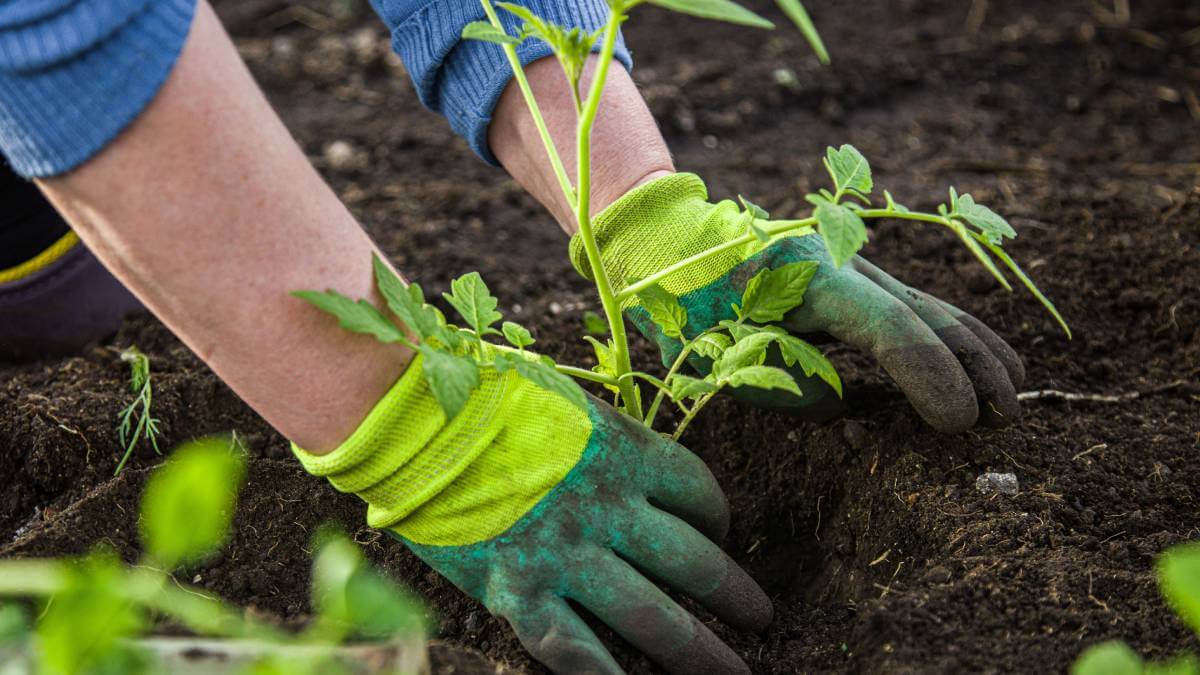As you start your great garden clear-up ready for the start of summer, spare a thought for what you may be throwing away.
Old squeaky tools, blunt shears and bedding plant debris may all end up in the bin. Yet there are many easy ways to avoid waste in the garden, if we just think about it.
Save seed

You can save seeds from a plethora of veg, including French beans, peas, tomatoes, chillies and zucchinis, enthuses seed expert Adam Alexander, author of the book The Seed Detective.
“Saving your own enables you to have seed which becomes adapted to local conditions, germinates more quickly and has greater viability and, above all, you know its provenance,” he says.
Many seeds can be extracted from mature, ripe crops, cleaned and dried off before storing in an envelope and placed in an airtight plastic container in a cool, dry spot. Mr Alexander advises people to choose open pollinated varieties from which to extract seeds, as they will come back truer than F1 hybrid types.
Share gluts
View this post on Instagram
Don’t throw away excess produce that you grow on an allotment or in your vegie patch at home. Share them with family, friends and neighbours, who in turn, may well swap what they have grown with you.
Preserve edibles
View this post on Instagram
If you run out of people to give gluts to, keep vegetables by blanching and freezing them – you can do this with beans, peas, sweetcorn and others. Chillies can also be frozen or dried, while zucchini, tomatoes, aubergines and onions can be transformed into ratatouille or layered in delicious vegetarian lasagnes for freezing.
Tomatoes can also be made into passata for freezing, while unripe green tomatoes are great for making chutney, which will keep for a year in a cool place, if the jar is properly sterilised and sealed. Gluts of fruit can be made into jams and compotes, while apples and blackberries can be cooked and frozen, to transform into pie fillings for a later date.
Maintain tools

Tools that have been looked after will last many seasons. If you’re going on holiday or you know you won’t be using your tools for a while, give them a clean and store them properly.
Clean spades, hoes, rakes, forks and trowels with a stiff brush, to remove soil from the blade and shaft, or give really muddy tools a hose down before drying them with an old towel. You can also oil tools with general purpose oil to help stop them rusting, although more modern stainless steel tools are less likely to rust.
After cleaning blades with wire wool and spraying mechanisms with WD40, sharpen secateurs with a diamond sharpener or sharpening steel. Some secateurs can be disassembled to make sharpening easier.
Replace annuals with perennials

The cost on the environment of annuals can be high if you consider the plastic pots still used extensively by garden centres, plus transport costs. Perennials, however, come back year after year, so you won’t have to replace them annually, and can save money as well as promoting more sustainable gardening.
If you can’t live without your burst of colourful summer annuals, try growing them from seed, using home-made containers, such as cardboard toilet-roll middles or biodegradable pots widely available in garden centres.
Clean garden furniture

Some garden furniture, such as aluminium sets, weatherproof wicker or plastic, doesn’t need much maintenance, just a quick clean with soap and water before you put them out for the season. However, wood furniture is a different story – even hard wood such as teak will need a coat of protector from time to time if you want the original colour to be maintained. Good quality teak can survive with virtually no treatment for many years.
Softwood such as pine, however, tends to be cheaper, and if you want to sustain it, it will need a coat of preserving stain or paint in dry weather every year, and you’ll need to cover it during the cooler months to avoid damp getting in. It’s also worth putting some rubber or plastic feet over the legs to avoid damp seeping into the wood.
Make compost
View this post on Instagram
Don’t ditch your green household waste, garden clippings and cardboard, because you can transform it into rich organic matter, whether you opt for a regular compost bin with a lid, or an open heap topped with old carpet to retain the heat.
It is important to get the balance right, though. You should aim for between 25-50 per cent soft green waste – such as grass clippings, kitchen veg waste, annual weeds or manure, with the remainder being woody brown material, such as prunings, paper, cardboard, dead leaves or straw. Avoid letting grass clippings become dominant, as they can become a slimy mess on their own.
What are your favourite summer gardening jobs? Do you have a vegie patch? Let us know in the comments section below.
Also read: Surprising uses of milk in the garden
– With PA

